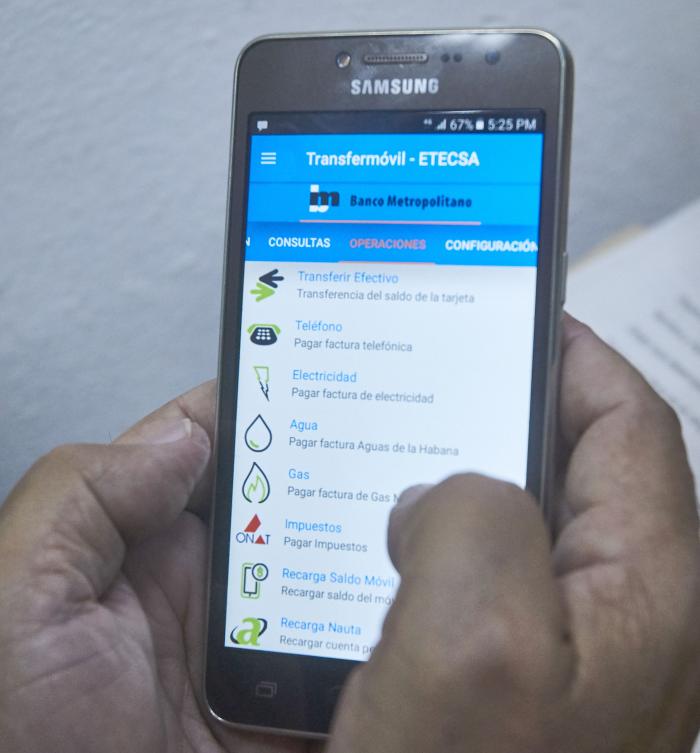The new digital government platform, Cubagob, offers IT solutions and facilities for managing government procedures and services online.
The Ministry of Communications (Mincom) itself has emphasised that, in order to boost digital government in Cuba, it is necessary to «advance in the integration, simplification and computerisation of procedures and the administrative processes that support it, incorporating payment and digital signatures, increase the capacity and preparation of the basic structures to assimilate the changes of digital government, as well as stimulate and increase the exchange between the government and citizens, making use of digital platforms, which favours feedback, accountability and transparency».
Among the advances, the new digital government platform Cubagob (www.cubagob.cu) stands out, currently in the final phase of organisation and institutionalisation, which integrates existing and new IT solutions, such as the creation of the citizen’s digital identity, while facilitating the management of government procedures and services online, with the use of payment and digital signature and government-citizen interaction.
For its presentation, the agency emphasised, the civil status registration procedures and those related to the identity card have been implemented, as well as making it possible to apply for social protection services and job offers.
Moreover, there are 263 digital government portals on the internet, including agencies, OACE, national entities, provincial and municipal governments.
Of the 328 procedures and services identified for natural persons, 139 have some level of computerisation; a figure that increases by more than 60 by the end of 2022.
The 41 procedures taxed under the Tax Law that require the payment of tax on public documents (stamp duty) can be paid digitally.
In 2023, 3.41 million procedures were carried out using the digital stamp, through Transfermóvil.
In the first five months of 2024, visits to oace web portals grew by 10 % and to provincial portals by 52.8 % compared to the last five months of 2023. However, 52% of visitors interact with the websites, the rest just open them and do not take any action.
According to Mincom, this shows that, although search engine optimisation work has improved, the generation of relevant and attractive content, including attention to the population, interrelation with other digital platforms and social networks, is still insufficient.
Since January 2023, they specified, the use of the digital form of the D’ Viajeros application is mandatory as a sworn declaration for entry into the country, which integrates advanced information for sanitary, customs and immigration control; contributing to reduce the transit time of passengers at the airport.
In 2024, the versions of toDus, Picta and apklis were updated, digital platforms that increase their features, improve their efficiency and gain recognition among Cuban Internet users.
They stressed that, in the development of digital government, the contribution of the observatory created at the University of Havana (www.gobiernodigital.fcom.uh.cu) has been vital, allowing a scientific approach to assess the impact of the results in this area, from a citizen’s perspective.
DIGITAL GOVERNANCE FROM TRANSFORMATION
One of the strategic axes of the Policy focuses on digital government as a way to «achieve citizen well-being, as well as improve the efficiency and transparency of government management, administration and public services, through the adoption of digital technologies, the optimal use of data, information and citizen participation».
Likewise, the Digital Agenda plans to establish the regulatory framework that promotes the development of digital government, which guarantees the reliability, authenticity, integrity, accessibility, transparency, immediacy and security of public management information, as well as citizen participation.
OBJECTIVES / LINES OF ACTION OF THE AGENDA
Promote and encourage a cultural change that allows for the digital transformation of the Government, from the different areas of management, and ensure citizen participation in a broad, expeditious and transparent manner, contributing to reduce the digital divide in any of its manifestations.
Create mechanisms for registration, updating and interoperability between the different actors of the Public Administration and the People’s Power, which allow the management of digital administrative processes and integrate citizen information for the creation of the single file.
Strengthen the design and implementation of public policies and sectoral management models through the use and adoption of digital technologies.
All of this should entail defining the main lines of action and goals for the digital transformation of agencies, national entities and local bodies of the People’s Power; extending the use of digital signatures to natural and legal persons; promoting the use of digital identity; implementing the platform for consultation, popular participation and electronic voting.
It also envisages the implementation of online procedures and services for the population; the design and implementation of the Cuban interoperability scheme; the digital declaration and payment of taxes; the digital payment of taxes on documents; the strengthening of the monitoring and research capacity of the Digital Government Observatory; the introduction of the internet of things in certain industrial and public services; the implementation of the Cuban model for the development of smart cities; the definition of digital government development indicators; and the implementation of accessibility options in all government portals.




